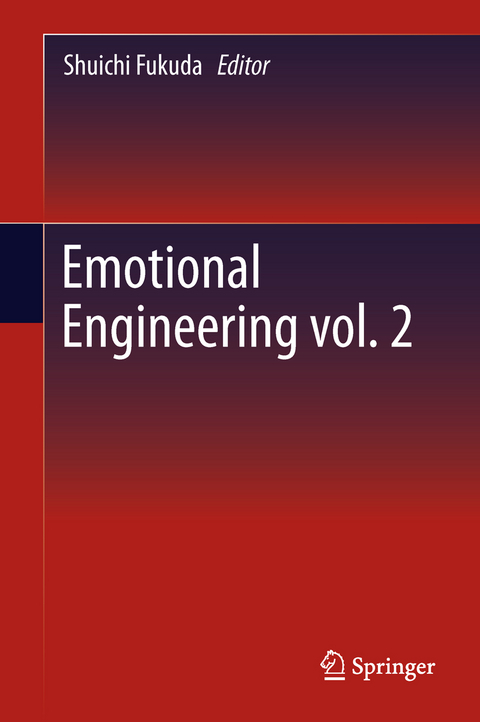
Emotional Engineering vol. 2
Springer London Ltd (Verlag)
978-1-4471-6128-8 (ISBN)
In an age of increasing complexity, diversification and change, customers expect services that cater to their needs and to their tastes. Emotional Engineering vol 2. describes how their expectations can be satisfied and managed throughout the product life cycle, if producers focus their attention more on emotion. Emotional engineering provides the means to integrate products to create a new social framework and develops services beyond product realization to create of value across a full lifetime.
14 chapters cover a wide range of topics that can be applied to product, process and industry development, with special attention paid to the increasing importance of sensing in the age of extensive and frequent changes, including:
Multisensory stimulation and user experience
Physiological measurement
Tactile sensation
Emotional quality management
Mental model
Kansei engineering.
Emotional Engineering vol 2 builds on Dr Fukuda’s previous book, Emotional Engineering, and provides readers with a holistic view of its research and applications, enabling them to make strategic decisions on how they can go further beyond product realization. It is recommended for all pioneers in industry, academia and government, who are making tremendous efforts to work with their customers to create value.
Shuichi Fukuda received his doctoral degree in Mechanical Engineering from the University of Tokyo. After working in the Department of Precision Machinery, University of Tokyo, he moved to Welding Research Institute, Osaka University. Later he worked concurrently as Associate Professor at the Institute of Industrial Science, University of Tokyo. He became Full Professor of Systems and Management Engineering at Tokyo Metropolitan Institute of Technology (TMIT) and was also Visiting Professor at West Virginia University, Stanford University, Osaka University. Since his retirement from TMIT, he has been working as Consulting Professor as Stanford and Visiting Professor, Cranfield University. Concurrently, He has been concurrently Visiting Professor at the Open University of Japan until 2012. He recently was appointed to Advisor, Systems Design and Management, Keio University in addition to his current positions at Stanford and Cranfield.
1.Emotion and Satisficing Engineering.- 2.Emotion and Innovation.- 3.Touch Feelings and Sensor for Measuring the Touch Feeling.- 4.Eliciting, Measuring and Predicting Affect via Physiological Measures for Emotional Design.- 5.Sensory Stimulation of Designers.- 6.FuzEmotion – A Backward Kansei Engineering Tool for Assessing and Confirming Gender Inclination
of Modern Cellular Phones.- 7.Proemotion: A Tool to Tell Mobile Phone’s Gender.- 8.Kansei Engineering : Methodology to the Project Oriented for the Customer.- 9.Kansei Engineering: Types of This Methodology.- 10.Interaction between Emotions and Mental Models in Engineering and Design Activities.- 11.Emotional Quality Inspection for Revealing Product Quality.- 12.Design Impression Analysis Based on Positioning and Coloring of Design Elements.- 13.Robust Design of Emotion for PET Bottle Shape Using Taguchi Method.- 14.Multisensory User Experience Design of Consumer Products.
| Erscheint lt. Verlag | 4.4.2015 |
|---|---|
| Zusatzinfo | VIII, 242 p. |
| Verlagsort | England |
| Sprache | englisch |
| Maße | 155 x 235 mm |
| Themenwelt | Kunst / Musik / Theater ► Design / Innenarchitektur / Mode |
| Mathematik / Informatik ► Informatik ► Grafik / Design | |
| Informatik ► Software Entwicklung ► User Interfaces (HCI) | |
| Technik ► Architektur | |
| Technik ► Maschinenbau | |
| Wirtschaft ► Betriebswirtschaft / Management ► Unternehmensführung / Management | |
| Schlagworte | Emotional Engineering • Expectation Management • Human Beaviour and Engineering Design • Intelligent Information Systems |
| ISBN-10 | 1-4471-6128-9 / 1447161289 |
| ISBN-13 | 978-1-4471-6128-8 / 9781447161288 |
| Zustand | Neuware |
| Haben Sie eine Frage zum Produkt? |
aus dem Bereich


